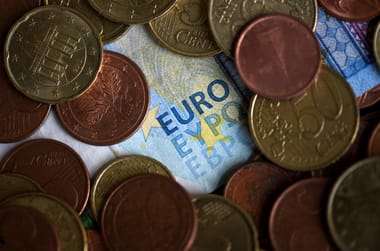
ELMAU, Germany — Leaders of the G7 advanced economies on Tuesday reached a broad agreement to seek ways to impose a price cap on Russian oil.
Having reached that overarching consensus on seeking options to impose the price limit on Moscow's exports, the G7 members will now have to do further work on the technical options of how to deliver it.
"This is a very ambitious and demanding project, and there is still a lot of work to be done,” German Chancellor Olaf Scholz said at a concluding press conference.
The agreement, reached in the early hours of the third day of the G7 summit at Schloss Elmau in the Bavarian Alps, follows growing frustration among Western countries that their embargoes on Russian oil have had the counterproductive effect of driving up the global crude price. This has led to a situation where Moscow ends up earning more money for its war chest and where oil market ructions help drive runaway inflation.
"The idea to put a cap is a very good one," French President Emmanuel Macron said following the summit. But, he added, "there is a technical difficulty" in getting it implemented.
Several leaders also stressed the agreement could open the door to future price caps on Russian pipeline gas, welcoming existing EU efforts on that front. Europe not only relies more on Russian gas, making it harder to swiftly turn away from the energy source, but the EU’s energy market structure often means overall electricity costs are tied to spiking gas prices.
“We tasked our ministers to urgently work on how to impose a cap on the price of gas and oil,” Italian Prime Minister Mario Draghi said, noting the EU’s pledge to “accelerate” its ongoing work on “a cap on gas price.”
The U.S. had initially pushed for a Russian oil price cap that could be enforced by lifting sanctions on insurance for the cargo ships that transport Russian oil in return for a price deal. Under the U.S. plan discussed in the runup to the summit, those sanctions would be lifted for countries that agreed only to buy Russian oil at a settled maximum price, creating an incentive to enforce the price cap.
The statement from the leaders ultimately identified this approach as a preferred choice.
“We will consider a range of approaches, including options for a possible comprehensive prohibition of all services, which enable transportation of Russian seaborne crude oil and petroleum products globally, unless the oil is purchased at or below a price to be agreed in consultations with international partners,” the statement said.
More broadly, G7 countries could use their cartel power as buyers to push for a lower price. The U.S. and Canada have banned Russian oil purchases and the EU is set to do so at the end of this year. For the Europeans, a limit on Russian prices would be a stop-gap measure. Japan also has plans for a phase-out.
Macron upended the discussions on Monday by calling for a worldwide price cap on oil prices instead of only targeting Russian oil sales. The French push triggered a backlash from the U.S. and Germany, which is hosting the G7 summit this year.
Two officials said Tuesday that France had backed down, making a deal possible.
Draghi also pressed the G7 to expand the price cap plan to cover Russian pipeline gas, according to another person familiar with the discussions.
The final statement said G7 countries will “seek to develop solutions that meet our objectives of reducing Russian revenues from hydrocarbons” and welcomed the EU's efforts “to explore with international partners ways to curb rising energy prices, including the feasibility of introducing temporary import price caps where appropriate.”
A senior EU official said the G7 agreement would open the door to looking into a possible gas price cap at a later stage.
Macron similarly expressed a desire to impose a gas price cap.
“The second thing we should progress on is to make the same thing for Russian gas, which is simpler because it comes via pipelines,” Macron said, noting that several countries are in favor of such a measure and will keep working on it “in the coming weeks.”
Suzanne Lynch contributed reporting.



